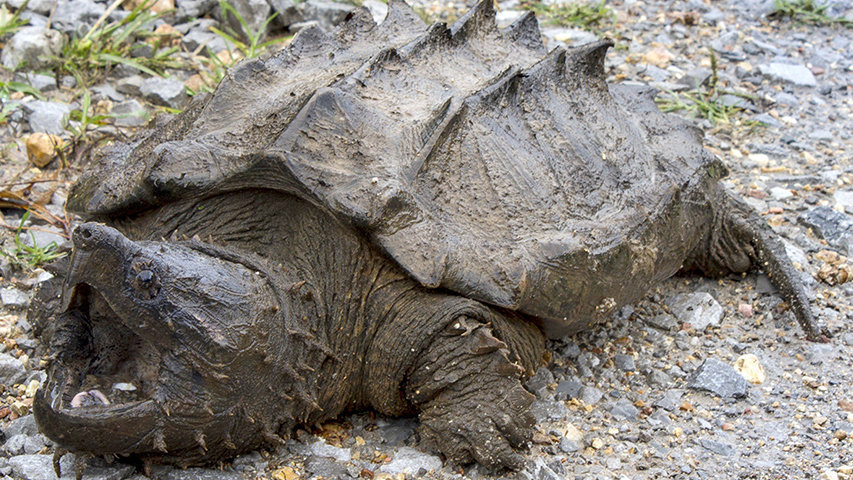
Harmful Agricultural Practices lead to Skewed Sex Ratios among Virginian Reptiles
by Yash Saboo May 8 2018, 2:10 pm Estimated Reading Time: 2 mins, 21 secsMercury contamination threatens many ecosystems worldwide. Methylmercury bioaccumulates at each trophic level and biomagnifies within individuals over time. Long-lived turtles often occupy high trophic positions and are likely to accumulate mercury in contaminated habitats. Millions of turtles worldwide are sold in Asia for human consumption and consumers may be at risk if turtles contain high levels of mercury.
A recent study about the effects of environmental conditions on sex ratios in turtle nests has shown that agricultural practices and mercury pollution are causing an increase in male-biased snapping turtle nests (large freshwater turtle of the family Chelydridae). While global warming has led to an excess of female sea turtles in the Pacific Ocean, environmental factors in Virginia are having the opposite effect on snapping turtles in the US.

Source : Phys.org
As explained by the Independent's article about snapping turtles, “Specifically, a team of scientists found that the cooling effect of agricultural land use combined with the chemical effects of mercury pollution influenced baby turtle demographics.”
Professor William Hopkins, a wildlife conservation expert at Virginia Tech, who oversaw the study, explains to the Independent, “Our work illustrates how routine human activities can have unexpected side effects for wildlife.” He continues, “We found strong masculinizing shifts in sex ratios caused by the interaction of two of the most common global changes on the planet, pollution and crop agriculture.”
The sex of a turtle is actually determined by the conditions in which their eggs develop, and one of the biggest influencing factors is temperature. The cooler a nest stays during the gestation period, the more likely there is to be a male-biased sex ratio.
When nesting, snapping turtles have been heading toward the open and sunny agricultural fields. However, as crops rapidly sprout up during the summer, these turtle nests are shaded over, thus cooling them down. As a result, the sex ratios are skewed with males being predominant amongst the hatching turtle eggs.
According to the Independent article, the study also found that mercury pollution compounds the problem. “The researchers also found that this effect was exacerbated by mercury, which is a major pollutant along the South River in Virginia due to leaks from a nearby manufacturing plant from 1929 to 1959.”
It is already known that mercury affects reptile reproduction, but for the first time, this study found that mercury pollution also specifically affects the sex ratio of snapping turtle eggs.
This surge in male turtles is problematic not just for snapping turtles but for turtle populations affected in general. Professor Hopkins explains to the Independent, “Turtle populations are sensitive to male-biased sex ratios, which could lead to population declines.” He adds, “These unexpected interactions raise new, serious concerns about how wildlife responds to environmental changes due to human activities.”




-173X130.jpg)
-173X130.jpg)
-173X130.jpg)
-173X130.jpg)
-173X130.jpg)
_(1)-173X130.jpg)

-173X130.jpg)